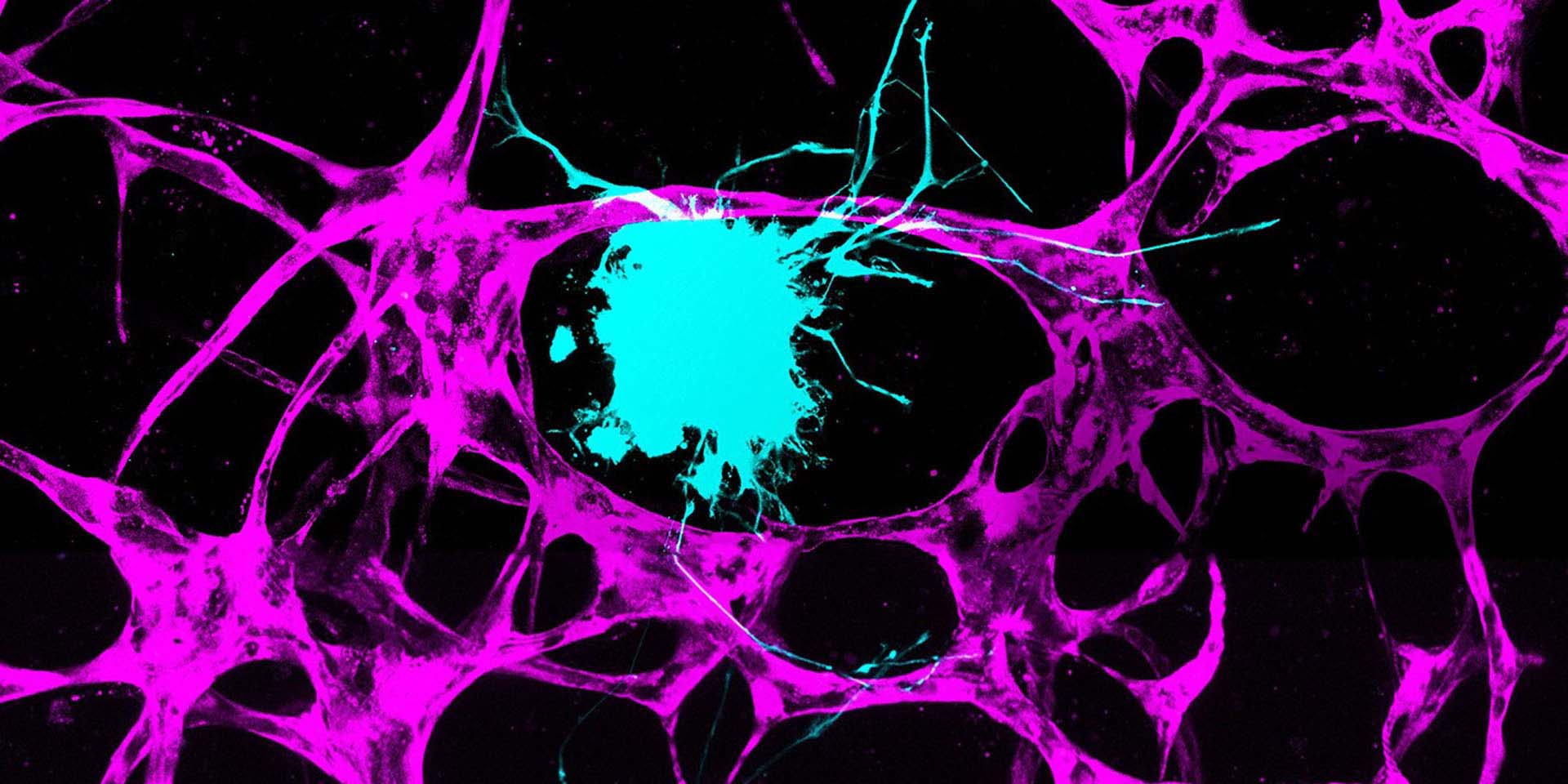
Straehla Lab
Engineering better therapeutics at the nanoscale
Led by Dr. Joelle Straehla, a pediatric oncologist and bioengineer, the Straehla Lab is dedicated to advancing drug delivery technologies for cancer therapy. Our expertise lies in nanomedicines — tiny, engineered particles designed to deliver drugs precisely to targeted cells and tissues.
Despite significant advancements in engineering and biology, children with cancer are still primarily treated with classic chemotherapies. While these drugs can be effective for some, they often come with serious side effects and can lead to lifelong health challenges. There are also childhood cancers that do not have effective treatments, and new options are urgently needed.
In the Straehla Lab, we embrace a collaborative mindset to develop more effective and less toxic therapies. By working closely with biologists who are uncovering new cancer vulnerabilities, we aim to transform the standard of care for children with cancer.
Operating at the intersection of nanotechnology and cancer biology, our lab strives to bridge the gap between innovative engineering tools and clinical practice, overcoming drug delivery challenges, particularly for pediatric patients.
Our primary objectives are:
- Designing and synthesizing new nanoparticle-based therapeutics.
- Identifying biological regulators of nanoparticle drug delivery.
- Improving the delivery of therapeutic agents across challenging tissue barriers.
- Developing strategies to selectively remodel the tumor microenvironment.
At the Straehla Lab, we celebrate diversity of thought and background and welcome all types of learners.
Lab News and Publications
See all the latest news.
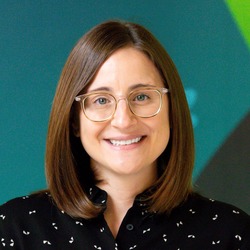
Joelle Payne Straehla, MD
Dr. Straehla received her MD from Northwestern University and completed pediatric residency at the University of Washington. During her fellowship in pediatric hematology/oncology at Dana-Farber/Boston Children's Cancer and Blood Disorders Center, she gained additional training in biological and chemical engineering in the laboratory of Dr. Paula Hammond at Massachusetts Institute of Technology. Prior to joining Seattle Children's in 2024, she was an instructor of pediatrics at Harvard Medical School, and a Charles W. (1955) and Jennifer C. Johnson Clinical Investigator at MIT's Koch Institute for Integrative Cancer Research. Dr. Straehla is a principal investigator at Seattle Children's Research Institute and a pediatric oncologist in Seattle Children’s Brain Tumor Program. She is an assistant professor of pediatrics and an adjunct assistant professor of bioengineering at the University of Washington, as well as a member of the Fred Hutch/University of Washington/Seattle Children's Cancer Consortium.
-
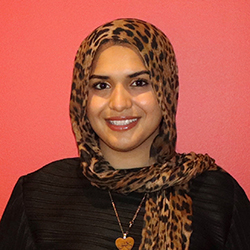
Alaa Abdou
Master's Student
Alaa Abdou earned her B.S. in Biomedical Engineering from Penn State. With interests in drug delivery, pediatric oncology, and nanomedicine, she brings experience from Regeneron, Rutgers, and Penn State. Through the MAB program, Alaa aims to refine her career path across intellectual property, medicine, and biomedical innovation.
-
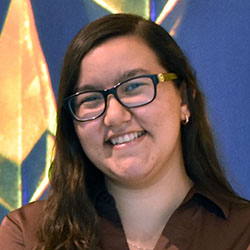
Kimberly Bennett
Co-Advised PhD Candidate
Kimberly is a PhD candidate in medical engineering and medical physics at the Harvard-MIT Health Sciences and Technology program. She is jointly advised with Dr. Paula Hammond and is based at MIT for her thesis work developing 3D microvascular models of the blood-brain-tumor barrier and targeted nanocarrier delivery for pediatric diffuse midline glioma.
-
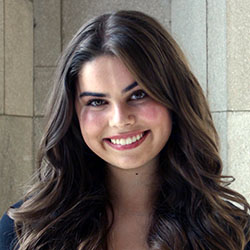
Nina Buzzotta
Undergraduate Student
Nina Buzzotta is an honors undergraduate student at the University of Washington studying Physiology with a minor in Spanish. In the Straehla Lab, she investigates how protein regulators affect lipid nanoparticle uptake to improve drug delivery, aiming to advance targeted therapeutic strategies through translational nanomedicine research.
-
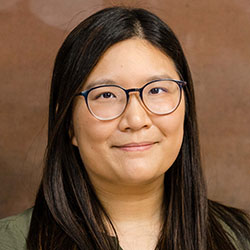
Emmeline Cheng, PhD
Research Scientist III
Emmeline earned her PhD in bioengineering from the University of Washington, where she developed T cell-targeting aptamers, leading to her prior work in CAR T cell process development. Continuing to improve patient care, she is studying protein regulators influencing nanoparticle uptake in tumors.
-
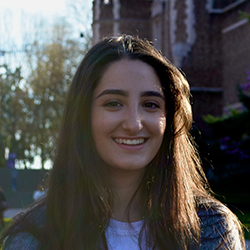
Kat Floerchinger
Master's Student
Kathryn (Kat) Floerchinger earned her B.S. in Bioengineering from the University of Washington. With research experience in therapeutic ultrasound and spinal cord injury, she’s interested in translational neuroscience. Through the MAB program, Kat aims to strengthen her research skills as she pursues medical school and a career bridging medicine and engineering.
-
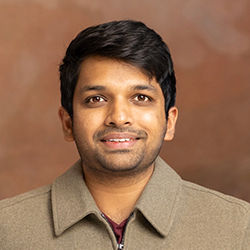
Karthik Gottimukkala
Postdoctoral Scholar
Karthik Gottimukkala, PhD, is a bioengineer focused on developing non-viral nanoparticle systems for gene editing therapeutics. His work aims to make genetic medicines more accessible and affordable for children worldwide by advancing safe, cost-effective delivery platforms bridging discovery and clinical translation in gene and cell therapy.
-
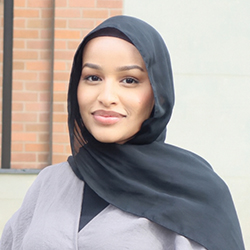
Sumaya Hassan
Master's Student
Sumaya Hassan earned her B.S. in Physiology with a minor in Chemistry from Seattle Pacific University. With three years of research experience studying inner ear mechanisms at UW, she is passionate about drug delivery and biomedical innovation and aims to pursue medical school to bridge medicine and engineering.
-
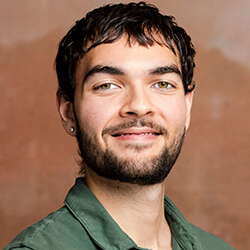
Maurice Lewis
Research Scientist I
Maurice earned his BS in biology from the University of California, San Diego, and has significant experience in lipid nanoparticle formulation development, characterization and delivery optimization. His research interests center on nanoparticle drug delivery, nano–bio interactions and the molecular factors that influence their transport across biological barriers, with the goal of advancing effective nanomedicine therapies.
-
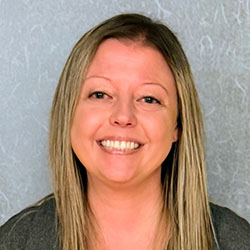
Angela Merrell
Research Scientist II
Angela is an in vivo scientist with extensive experience leading animal model studies to assess, compare, and analyze new cancer therapies. Her work focuses on translational evaluation and optimization of therapeutic delivery and efficacy for drug candidates as they progress to preclinical models.
-
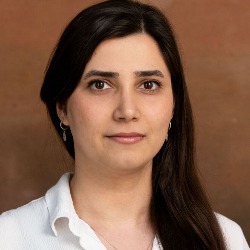
Elnaz Shaabani Sichani, PhD
Postdoctoral Scholar
Elnaz holds a PhD in pharmaceutical sciences with expertise in developing Layer-by-Layer nanoparticles for nucleic acid delivery (siRNA, mRNA, pDNA). Her research focuses on gene delivery for therapeutic goals, such as enhancing angiogenesis and macrophage reprogramming, as well as light-triggered delivery systems.
